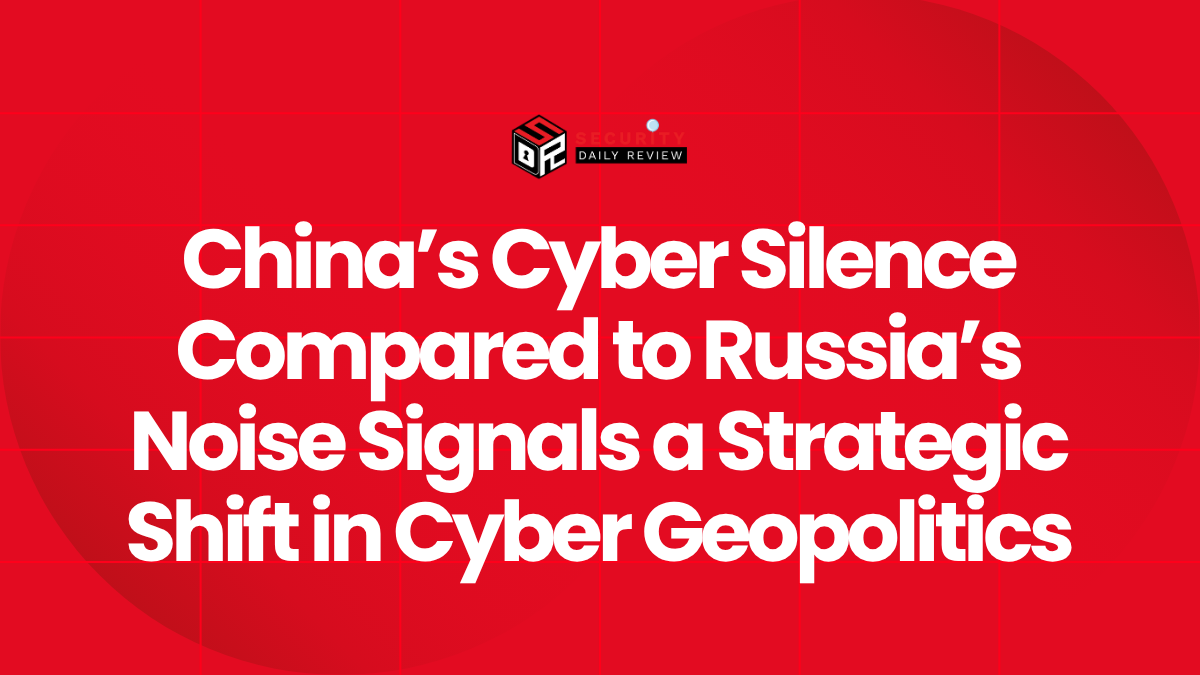The global cyber threat landscape is undergoing a critical transition, shaped by intensifying geopolitical rivalries, technological acceleration, and emerging capabilities in artificial intelligence. In an exclusive commentary, Mihoko Matsubara, the chief cybersecurity strategist at NTT, highlights this evolution—arguing that China’s cyber silence could pose a greater strategic concern than Russia’s aggressive but noisy posture. Her insights offer a sobering perspective on how global hacking strategies are adapting to the realities of power, stealth, and autonomy.
Strategic Contrasts in Nation-State Hacking Tactics
Chinese Cyber Silence Masks Covert Operational Depth
One of the most notable shifts in recent years is China’s transformation from brazen exploitation campaigns to quieter, more targeted cyber intrusions. Unlike Russia, which often embraces an overt cyber strategy serving propaganda and political disruption, China’s operations are growing quieter—and arguably more sophisticated.
“The silence is worrying,” Matsubara said. “Russia makes noise, but China learns from it.”
China’s approach focuses on long-term objectives, including economic espionage, military advantage, and surveillance. This strategic pivot likely stems from observing international response mechanisms, such as sanctions and indictments, which have historically followed high-profile breaches linked to Russia. Matsubara suggests that China is learning how to operate in more covert ways to achieve strategic goals without sparking diplomatic backlash.
Russian Noise Reflects Tactical Objectives Rather Than Long-Term Strategy
In contrast, Russian cyber operations remain brash and politically provocative. From disruptive ransomware campaigns to election interference, Russia often prioritizes information warfare over prolonged infiltration. While such tactics capture headlines and cause short-term chaos, they also attract global condemnation and coordinated threat mitigation.
However, the transparency of Russian actions—frequently claimed or indirectly confirmed—suggests a lower level of strategic recalibration compared to China. Matsubara underlined that understanding this difference is essential for defenders preparing for multinational threat actors.
5G Cybersecurity and the Chicken-and-Egg Dilemma
Infrastructure Readiness Lags Behind Security Policy
The global rollout of fifth-generation (5G) wireless networks brings with it a raft of cybersecurity challenges. For Matsubara, one of the most pressing questions is whether robust cybersecurity practices can keep pace with 5G’s accelerating deployment. The core issue, which she labels as a “chicken-and-egg” problem, revolves around timing: Should organizations wait for security standards to mature before deploying 5G-enabled solutions, or can deployment proceed in parallel with security development?
This dilemma is particularly pronounced in sectors like critical infrastructure, where 5G opens the door to new automation capabilities but also introduces attack vectors that remain under-researched and under-secured.
“We must build trust step-by-step,” asserted Matsubara, noting that “you cannot retrofit security.”
Strategists warn that overlooking systemic vulnerabilities during early infrastructure decisions may leave whole industries exposed once more sophisticated adversaries target the expanded 5G attack surface.
Artificial General Intelligence (AGI) and Future Cyber Risks
AGI Could Widen Threat Gaps Between Defensive and Offensive Capabilities
While current focus remains on near-term nation-state actors, Matsubara also raised longer-horizon concerns related to developments in Artificial General Intelligence (AGI). Unlike narrow AI systems that perform specific tasks, AGI would possess generalized intelligence—potentially surpassing human capabilities in decision-making, strategy, and adaptation.
According to Matsubara, the proliferation of AGI could severely unbalance the current cyber threat equilibrium. If weaponized before adequate regulatory and security governance frameworks are in place, AGI could enable adversaries—both state and non-state actors—to conduct autonomous, flexible, and near-invisible cyber operations.
“AGI poses a societal risk, not just a tech challenge,” she said.
This concern reinforces the urgent need for cross-sector collaboration between governments, corporations, and academia to establish baseline AGI protections before real-world deployment begins. Without global coordination, AGI may widen the gap between defensive technology and offensive tactics.
Global Partnerships and Intelligence Sharing Remain Critical
Trust-Based Alliances Strengthen Collective Cyber Resilience
Matsubara stressed that no single nation or enterprise can address today’s cyber threat landscape alone. Japan’s own experience with cyber diplomacy and multilingual security alliances offers a case study in the value of information sharing and collaborative defense paradigms.
Efforts like the Five Eyes intelligence alliance and intergovernmental standards forums provide foundational defense against best-in-class adversaries. Additionally, public-private partnerships could help accelerate global reactions to stealthier threats like China’s cyber strategies or the latent AGI dangers looming on the horizon.
Final Thoughts
China’s cyber silence, characterized by strategic restraint and stealth, may be more dangerous than Russia’s loud and brash operations. 5G disruption, combined with the speculative but real threat of AGI, adds new layers of complexity to an already volatile cyber landscape. As noted by Matsubara, forward-looking defense must incorporate not only technical prevention, but also geopolitical, strategic, and ethical dimensions.
Cybersecurity professionals must not only mitigate today’s attacks—they must also anticipate how new technologies and evolving nation-state strategies may reshape tomorrow’s battlefield.









